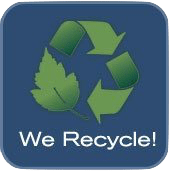 Privacy Laws Apply to Every Business
Privacy Laws Apply to Every Business
Businesses should know the following about the FACTA, HIPAA, and GLB Disposal rules:
- Severe Penalties await Violators
- Destruction of Consumer Information is required by Federal Law before it is Discarded
- This Applies to Virtually Every Business and Person in the United States.
- Our highly trained Document Security Specialists can provide detailed information about exactly which privacy laws apply to your business!
Privacy Laws You Need To Know
Privacy laws apply to every business. Violations of the following laws can result in a penalty or even loss of your business license. It is important to protect your customers and yourself. Here are some of the most important privacy laws you should be aware of as a business owner.
FACTA
What Is FACTA? FACTA is the Fair and Accurate Credit Transaction Act of 2003 (FACTA), is a NEW FEDERAL LAW. It is designed to reduce the risk of Consumer Fraud and Identity Theft, created by improper disposal of consumer information. FACTA will help educate and protect Businesses and Consumers. For example, consumers will have the right to one free credit report annually from the national repositories and national specialty credit reporting agencies. President Bush signed the FACTA Law On December 4, 2003. This legislation contains significant amendments to the Fair Credit Reporting Act on a broad scope of topics and issues. For a initial analysis of FACTA and the many changes it makes to the Fair Credit Reporting Act (FCRA) go online and visit The National Consumer Law Center.
The FACTA Law requires you dispose of records properly or pay State and Federal fines of $1000.00 – $2500.00 per record.
HIPAA
The Health Insurance Portability and Accountability Act of 1996 was designed to protect patients’ confidential information. Patient information maintained by healthcare providers, healthcare institutions and health insurance companies is regulated by this Act. Visit The U.S. Department of Health and Human Services website for more information on the HIPAA Act of 1996.
Gramm-Leach-Bliley Act
The Financial Modernization Act of 1999, or Gramm-Leach-Bliley Act (GLB) set guidelines for the handling of financial information held by financial institutions. This act likely affects your business if you handle customers financial information. For more details visit The Federal Trade Commission website.
Privacy Act of 1974
The Privacy Act of 1974 protects the privacy of records maintained by the federal government. For additional information visit the Federal Trade Commission’s site here.
The Resource Conservation and Recovery Act (RCRA)
This law creates the framework for the proper management of hazardous and non-hazardous solid waste. For additional information visit the Environmental Protection Agency website.
Family Educational Rights and Privacy Act (FERPA)
The Family Educational Rights and Privacy Act (FERPA) (20 U.S.C. § 1232g; 34 CFR Part 99) is a Federal law that protects the privacy of student education records. The law applies to all schools that receive funds under an applicable program of the U.S. Department of Education.
Supreme Court Ruling
The Supreme Court has ruled that information in your trash is “fair game” to anyone. The current law in the United States (federal as well as state law) is that: a person has no reasonable expectation of privacy for contents of garbage; and a person has relinquished any property interest in garbage, even when it sits in metal trash cans or opaque plastic bags at the person’s home awaiting collection.
Think twice before throwing away documents without shredding them first, and contact a certified document shredding company today.

 Veteran owned, Veteran secure, Veteran reliable
Veteran owned, Veteran secure, Veteran reliable
